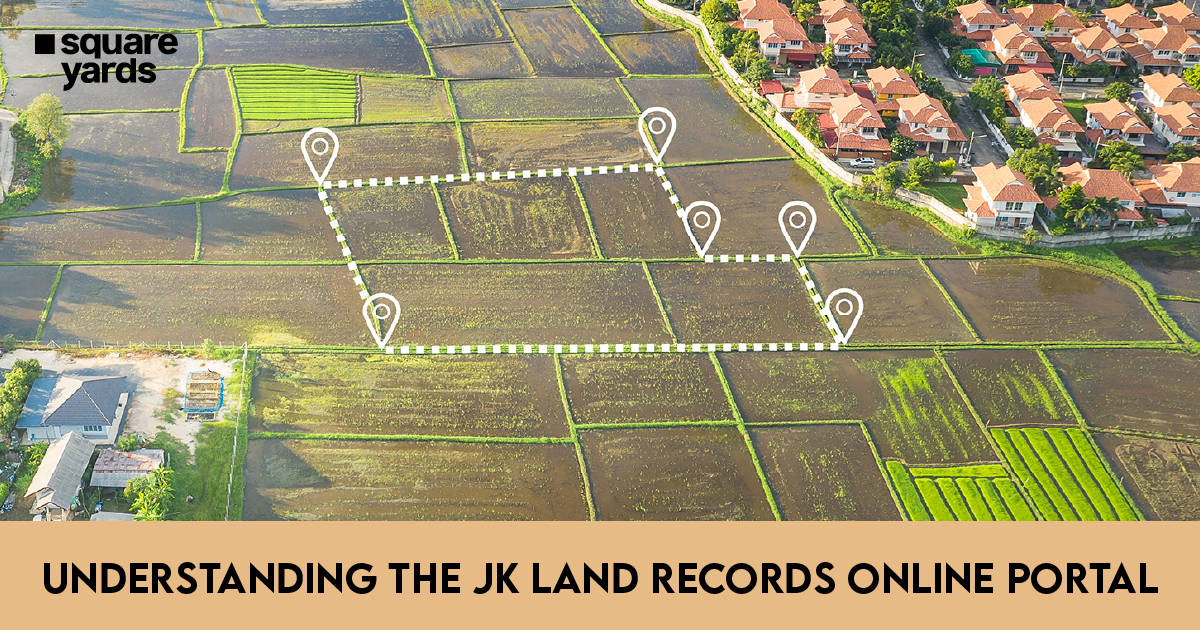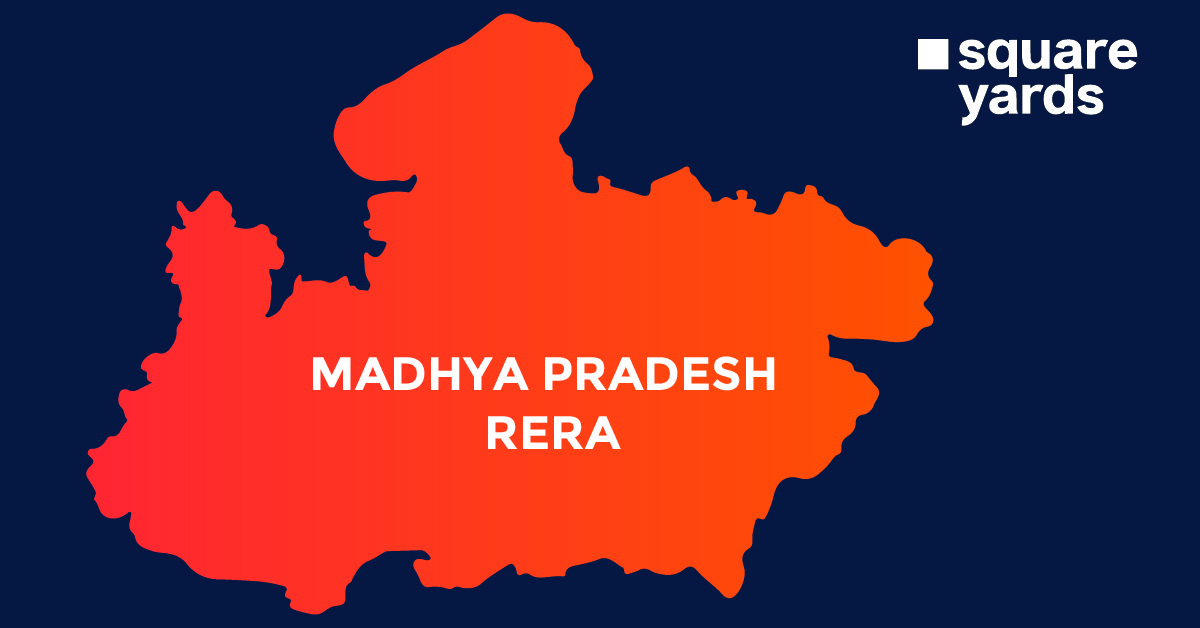Unlike other complicated non-metric conversions, converting CM to M is fairly simple. Centimeters and Meters are two prominent units in measurement, especially when it comes to assessing the length and height of objects.
If you have ever been to a tailor, you might have noticed a measuring tape and a meter rod. A Meter rod is essentially utilised for gauging the height and length of the cloth and is usually of a Meter length. That’s why the rod is named so.
On the other hand, Centimeters are most commonly used to measure a person’s height beside the length and height of certain objects. To know how SquareYards will help you with the CM to Meter conversion, let us give you a rundown on the guide to convert CM to Meter.
Overview of Centimeter
A Centimeter is the unit of length measurement in the metric system, which is 1/100 (one-hundredth) of a Meter. In British English, a Centimeter is written as Centimetre.
Scientifically, a Centimeter can be defined as the distance travelled by light in a vacuum within 1/299,792,458 seconds. It’s nothing but a multiple of Meter, the base unit of length.
The symbol CM represents a Centimeter. For example, you can write 7 Centimeters as 7 CM, 25 Centimeters as 25 CM, etc. Typically, a metric ruler is 30 CM in length, demonstrated by 30 large tick marks.
For a rough idea about the actual length of a Centimeter, you can consider the thickness of a standard pencil, which is about 1 CM.
If you wish to map the length of the ribbon, cloth, etc., try using a ruler or tape. A ruler or tape is readily available at homes and local retailers. Nevertheless, you must pay attention while buying the ruler as they are available in metric, imperial, or the mix of both systems. Just make sure that you buy the right one based on your needs.
Current Use of Centimeter
Besides using the Centimeter as a measurement unit of the length or distance, the unit is also employed to report the level of rainfall measured by a rain gauge.
In the CGS system, a Centimeter finds its application in gauging capacitance, where 1 CM of capacitance is equal to 1.113×10−12 Farads. However, in maps, a Centimeter makes conversions from map scale to the real-world scale (Kilometers).
Origin of Centimeter
The term ‘Centimeter’ originates from the French ‘Centimètre’, a blend of the Latin word ‘Centum’ for hundred, and the French ‘mètre’.
Besides the U.S, the Centimeter is used as Centimetre across the world.
Overview of Meter
Meter is the base and SI unit for measuring length and distance. A Meter is clearly defined in the International System of Units as a distance traversed by the light within 1/299 792 458 of one second.
When we relate a Meter to the other popular length measurement units, it equals 39.370 inches or 1.0936 yards. Additionally, 1 Meter is equivalent to 100 Centimetres.
Officially, a Meter is represented by the symbol ‘m’ and therefore, you can represent 1 Meter as 1 M, 350 Meters as 350 M, and so on.
Generally, people use meters regularly without actually noticing it. For example, the height of a 5-year-old boy (most commonly), the length of the guitar, the width of the door, etc., are of a Meter length.
You can use a ruler or a tape to measure the length of objects, cloths, etc., in Meters. Such tapes and rulers are easily available at local retailers and home centres.
Current Use of Meter
Meter is known as a standard metric unit. Moreover, it is prominently used for measuring length. Often, it maps the distances in races and real estate domains.
The category of racetracks is determined in terms of the 100 and 200 Meter races. Besides this, it is also implemented in measuring the width of the fence and house.
Origin of Meter
The definition of Meter was originally framed in 1793 as one ten-millionth of the distance from the equator to the North Pole with a great circle. Ergo, the Earth’s circumference is approximately 4000 Kilometers.
The Meter was redefined later in 1799 as a prototype Meter bar. The actual unit bar was altered and updated in 1889. In 1960, the definition of Meter was once again structured as a specific number of wavelengths of a certain emission line of krypton-86.
The currently used definition of Meter was accepted in 1983. It had a subtle update in 2002 to clarify that the unit is a correct and actual standard for measuring the length.
Relationship between Centimeter and Meter
Comprehending the relationship between Centimeter and Meter is pretty easy. Let us understand it with the help of a mathematical expression for better clarification.
1 Centimeter = 0.01 Meters
While 1 Meter = 100 Centimeters.
As you can notice, it’s all about zeroes and ones. Additionally, the values here seem easy to remember.
How to Convert CM to M?
The CM to Meter conversion uses two methods- one involves using the SquareYards’ Centimeter to Meter converter, while the other comprises the conversion formula.
In the former one, you need to put the value of Centimeter in the required field and simply hit the Enter key. Or you can also click on the convert button. The value in Meters will appear in a second.
On the other hand, the conversion formula requires multiplying the value of Centimeters by 0.01. The resulting value would be in Meters.
The Formula and Examples for Converting CM to Meter
When you express the aforementioned statement in a mathematical equation, the formula for CM to M conversion can be derived. It would be-
Meter = Value of Centimeter x 0.01.
So, as you can see, you only need a multiplication skill or a simple calculator that can multiply the values.
To understand the conversion process better, let us solve a few practical problems!
Example 1: Convert 100 CM to M
Sol: Putting the value of Centimeter in the conversion formula, we will get-
Meter = 100 x 0.01 = 1.
Hence, 100 Centimeters is equal to 1 Meter.
Example 2: Convert 1000 CM to M
Sol: Following the same process as above, we will get-
Meter = 1000 x 0.01 = 10.
Therefore, 1000 CM is equivalent to 10 Meters.
Example 3: Convert 10 CM to M
Sol: Put the value of Centimeter in the conversion formula and solve it as follows:
Meter = 10 x 0.01 = 0.1.
Thus, 10 CM is equal to 0.1 Meter.
Example 4: Convert 30 CM to M
Sol: As we know, 1 Centimeter to Meter equals 0.01. Therefore, 30 CM to M would be-
Meter = 30 x 0.1 = 0.3.
Hence, 30 Centimeters is equivalent to 0.3 Meter.
Difference between Centimeters and Meters
While until now, you might have got more than just a gist of what Meters and Centimeters are, it’s important you understand the difference between the two units precisely. They might have similar applications at a few places, but they differ slightly on several grounds. Some of them are as follows:
| Differentiating Terms | Centimeters | Meters |
| Definition | A Centimeter is the unit of length measurement in the metric system, which is 1/100 (one-hundredth) of a Meter. In British English, a Centimeter is written as Centimetre. | Meter is the base and SI unit for the measurement of length and distance. A Meter is clearly defined in the International System of Units as a distance traversed by the light within 1/299 792 458 of one second. |
| Symbol | CM | M |
| Use | Besides measuring the length and distance, a Centimeter also measures the rainfall in a certain region. | It is used to measure the length and distance of various things. |
| Value | 1 Centimeter = 0.01 Meter | 1 Meter = 100 Centimeters |
| Size | One Centimeter is a hundred times smaller than a Meter. | A Meter is a hundredth times bigger than a Centimeter. |
Don’t miss It!
| Liter to Gallon | Liter to Gallon Conversion: Conversion Table, Examples |
| Feet to Centimeter | How to Convert Feet to Centimeter: Formula & Examples |
| Cubic Meter to Liter | How to Convert Cubic Meter to Liter: Formula & Examples |
| Cent to Square Feet | How to Convert Cent to Square Feet: Formula & Examples |
| Pounds to Kilogram | How to Convert Pounds to Kilogram: Formula & Examples |
| Milligrams to Grams | How to Convert Milligramsto Grams: Formula & Examples |
| Cent to Square Meter | How to Convert cent to sq m: Formula & Examples |
| Grams to Ounces | How to Convert Grams to Ounces: Formula & Examples |
Centimeter to Meter Conversion Table
| Centimeters [cm] | Meters [m] | Centimeters to Meters [cm to m] |
| 1 cm | 0.01 m | 1 Centimeters is equal to 0.01 Meters |
| 2 cm | 0.02 m | 2 Centimeters is equal to 0.02 Meters |
| 3 cm | 0.03 m | 3 Centimeters is equal to 0.03 Meters |
| 4 cm | 0.04 m | 4 Centimeters is equal to 0.04 Meters |
| 5 cm | 0.05 m | 5 Centimeters is equal to 0.05 Meters |
| 6 cm | 0.06 m | 6 Centimeters is equal to 0.06 Meters |
| 7 cm | 0.07 m | 7 Centimeters is equal to 0.07 Meters |
| 8 cm | 0.08 m | 8 Centimeters is equal to 0.08 Meters |
| 9 cm | 0.09 m | 9 Centimeters is equal to 0.09 Meters |
| 10 cm | 0.1 m | 10 Centimeters is equal to 0.1 Meters |
| 11 cm | 0.11 m | 11 Centimeters is equal to 0.11 Meters |
| 12 cm | 0.12 m | 12 Centimeters is equal to 0.12 Meters |
| 13 cm | 0.13 m | 13 Centimeters is equal to 0.13 Meters |
| 14 cm | 0.14 m | 14 Centimeters is equal to 0.14 Meters |
| 15 cm | 0.15 m | 15 Centimeters is equal to 0.15 Meters |
| 16 cm | 0.16 m | 16 Centimeters is equal to 0.16 Meters |
| 17 cm | 0.17 m | 17 Centimeters is equal to 0.17 Meters |
| 18 cm | 0.18 m | 18 Centimeters is equal to 0.18 Meters |
| 19 cm | 0.19 m | 19 Centimeters is equal to 0.19 Meters |
| 20 cm | 0.2 m | 20 Centimeters is equal to 0.2 Meters |
| 21 cm | 0.21 m | 21 Centimeters is equal to 0.21 Meters |
| 22 cm | 0.22 m | 22 Centimeters is equal to 0.22 Meters |
| 23 cm | 0.23 m | 23 Centimeters is equal to 0.23 Meters |
| 24 cm | 0.24 m | 24 Centimeters is equal to 0.24 Meters |
| 25 cm | 0.25 m | 25 Centimeters is equal to 0.25 Meters |
| 26 cm | 0.26 m | 26 Centimeters is equal to 0.26 Meters |
| 27 cm | 0.27 m | 27 Centimeters is equal to 0.27 Meters |
| 28 cm | 0.28 m | 28 Centimeters is equal to 0.28 Meters |
| 29 cm | 0.29 m | 29 Centimeters is equal to 0.29 Meters |
| 30 cm | 0.3 m | 30 Centimeters is equal to 0.3 Meters |
| 31 cm | 0.31 m | 31 Centimeters is equal to 0.31 Meters |
| 32 cm | 0.32 m | 32 Centimeters is equal to 0.32 Meters |
| 33 cm | 0.33 m | 33 Centimeters is equal to 0.33 Meters |
| 34 cm | 0.34 m | 34 Centimeters is equal to 0.34 Meters |
| 35 cm | 0.35 m | 35 Centimeters is equal to 0.35 Meters |
| 36 cm | 0.36 m | 36 Centimeters is equal to 0.36 Meters |
| 37 cm | 0.37 m | 37 Centimeters is equal to 0.37 Meters |
| 38 cm | 0.38 m | 38 Centimeters is equal to 0.38 Meters |
| 39 cm | 0.39 m | 39 Centimeters is equal to 0.39 Meters |
| 40 cm | 0.4 m | 40 Centimeters is equal to 0.4 Meters |
| 41 cm | 0.41 m | 41 Centimeters is equal to 0.41 Meters |
| 42 cm | 0.42 m | 42 Centimeters is equal to 0.42 Meters |
| 43 cm | 0.43 m | 43 Centimeters is equal to 0.43 Meters |
| 44 cm | 0.44 m | 44 Centimeters is equal to 0.44 Meters |
| 45 cm | 0.45 m | 45 Centimeters is equal to 0.45 Meters |
| 46 cm | 0.46 m | 46 Centimeters is equal to 0.46 Meters |
| 47 cm | 0.47 m | 47 Centimeters is equal to 0.47 Meters |
| 48 cm | 0.48 m | 48 Centimeters is equal to 0.48 Meters |
| 49 cm | 0.49 m | 49 Centimeters is equal to 0.49 Meters |
| 50 cm | 0.5 m | 50 Centimeters is equal to 0.5 Meters |
| 51 cm | 0.51 m | 51 Centimeters is equal to 0.51 Meters |
| 52 cm | 0.52 m | 52 Centimeters is equal to 0.52 Meters |
| 53 cm | 0.53 m | 53 Centimeters is equal to 0.53 Meters |
| 54 cm | 0.54 m | 54 Centimeters is equal to 0.54 Meters |
| 55 cm | 0.55 m | 55 Centimeters is equal to 0.55 Meters |
| 56 cm | 0.56 m | 56 Centimeters is equal to 0.56 Meters |
| 57 cm | 0.57 m | 57 Centimeters is equal to 0.57 Meters |
| 58 cm | 0.58 m | 58 Centimeters is equal to 0.58 Meters |
| 59 cm | 0.59 m | 59 Centimeters is equal to 0.59 Meters |
| 60 cm | 0.6 m | 60 Centimeters is equal to 0.6 Meters |
| 61 cm | 0.61 m | 61 Centimeters is equal to 0.61 Meters |
| 62 cm | 0.62 m | 62 Centimeters is equal to 0.62 Meters |
| 63 cm | 0.63 m | 63 Centimeters is equal to 0.63 Meters |
| 64 cm | 0.64 m | 64 Centimeters is equal to 0.64 Meters |
| 65 cm | 0.65 m | 65 Centimeters is equal to 0.65 Meters |
| 66 cm | 0.66 m | 66 Centimeters is equal to 0.66 Meters |
| 67 cm | 0.67 m | 67 Centimeters is equal to 0.67 Meters |
| 68 cm | 0.68 m | 68 Centimeters is equal to 0.68 Meters |
| 69 cm | 0.69 m | 69 Centimeters is equal to 0.69 Meters |
| 70 cm | 0.7 m | 70 Centimeters is equal to 0.7 Meters |
| 71 cm | 0.71 m | 71 Centimeters is equal to 0.71 Meters |
| 72 cm | 0.72 m | 72 Centimeters is equal to 0.72 Meters |
| 73 cm | 0.73 m | 73 Centimeters is equal to 0.73 Meters |
| 74 cm | 0.74 m | 74 Centimeters is equal to 0.74 Meters |
| 75 cm | 0.75 m | 75 Centimeters is equal to 0.75 Meters |
| 76 cm | 0.76 m | 76 Centimeters is equal to 0.76 Meters |
| 77 cm | 0.77 m | 77 Centimeters is equal to 0.77 Meters |
| 78 cm | 0.78 m | 78 Centimeters is equal to 0.78 Meters |
| 79 cm | 0.79 m | 79 Centimeters is equal to 0.79 Meters |
| 80 cm | 0.8 m | 80 Centimeters is equal to 0.8 Meters |
| 81 cm | 0.81 m | 81 Centimeters is equal to 0.81 Meters |
| 82 cm | 0.82 m | 82 Centimeters is equal to 0.82 Meters |
| 83 cm | 0.83 m | 83 Centimeters is equal to 0.83 Meters |
| 84 cm | 0.84 m | 84 Centimeters is equal to 0.84 Meters |
| 85 cm | 0.85 m | 85 Centimeters is equal to 0.85 Meters |
| 86 cm | 0.86 m | 86 Centimeters is equal to 0.86 Meters |
| 87 cm | 0.87 m | 87 Centimeters is equal to 0.87 Meters |
| 88 cm | 0.88 m | 88 Centimeters is equal to 0.88 Meters |
| 89 cm | 0.89 m | 89 Centimeters is equal to 0.89 Meters |
| 90 cm | 0.9 m | 90 Centimeters is equal to 0.9 Meters |
| 91 cm | 0.91 m | 91 Centimeters is equal to 0.91 Meters |
| 92 cm | 0.92 m | 92 Centimeters is equal to 0.92 Meters |
| 93 cm | 0.93 m | 93 Centimeters is equal to 0.93 Meters |
| 94 cm | 0.94 m | 94 Centimeters is equal to 0.94 Meters |
| 95 cm | 0.95 m | 95 Centimeters is equal to 0.95 Meters |
| 96 cm | 0.96 m | 96 Centimeters is equal to 0.96 Meters |
| 97 cm | 0.97 m | 97 Centimeters is equal to 0.97 Meters |
| 98 cm | 0.98 m | 98 Centimeters is equal to 0.98 Meters |
| 99 cm | 0.99 m | 99 Centimeters is equal to 0.99 Meters |
| 100 cm | 1 m | 100 Centimeters is equal to 1 Meters |
FAQ’s about Convert CM to M
Q1. How many CM means 1 Meter?
100 Centimeters mean 1 Meter.
Q2. What is the formula for CM to M?
The formula for CM to M is as follows:
CM = Meter x 0.01.
Q3. Which is bigger CM or M?
A Meter is bigger than a Centimeter which is quite obvious from the relation between the two units, that is, 1 Centimeter = 100 Meters.
































